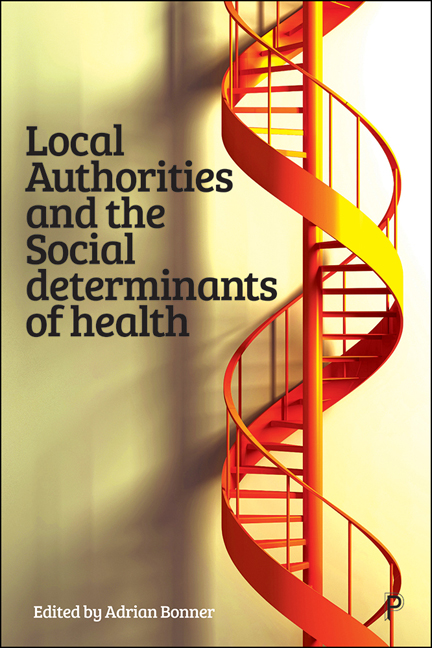Book contents
- Frontmatter
- Dedication
- Contents
- List of Figures, Tables and Boxes
- Notes on Contributors
- Acknowledgements
- Foreword
- Summary
- Introduction: Key Sociopolitical Changes Affecting the Health and Wellbeing of People
- Part I Health, Social Care and Community Wellbeing
- Part II The Role of Local Authorities in Promoting Health and Wellbeing in the Community
- Part III Local Authority Commissioning
- Part IV The Third Sector
- Part V Socio-Economic Political Perspectives
- Conclusion
- Appendix: COVID-19 Timeline
- Index
Introduction
Published online by Cambridge University Press: 25 March 2021
- Frontmatter
- Dedication
- Contents
- List of Figures, Tables and Boxes
- Notes on Contributors
- Acknowledgements
- Foreword
- Summary
- Introduction: Key Sociopolitical Changes Affecting the Health and Wellbeing of People
- Part I Health, Social Care and Community Wellbeing
- Part II The Role of Local Authorities in Promoting Health and Wellbeing in the Community
- Part III Local Authority Commissioning
- Part IV The Third Sector
- Part V Socio-Economic Political Perspectives
- Conclusion
- Appendix: COVID-19 Timeline
- Index
Summary
In Chapter 1, Harry Burns sets the context of this book by drawing our attention to the decline in life expectancy in the United States (US), United Kingdom (UK) and other European countries since 2014. This demographic phenomenon appears to be related to underlying social and economic factors, leading to ‘deaths of despair’. Social isolation and poor labour market opportunities negatively impact on physical and mental health. There are particular concerns regarding increasing levels of premature deaths in younger age groups. In many cases, deaths are due to drug overdoses, suicide, alcohol-related problems and ‘external causes’, such as violence and accidents. The author of Chapter 1, as former Chief Medical Office for Scotland, has a unique view of diseases linked to contemporary lifestyles (often referred to as ‘non-communicable diseases’), which are significantly linked to social, cultural and psychological environments. These social determinants are, to a large extent, influenced by local and national politics. Following the devolution of statutory powers to Scotland (see Chapter 20) and Wales (see Chapter 21), there are quite distinct health and social care policies emerging across UK regions. Burns provides a critique of the hierarchy of needs, proposed by Maslow in the 1940s, highlighting the pivotal nature of self-actualisation and the spiritual concept of cultural propensity, the capacity of which depends on early life experiences of nurturing and attachment, setting the scene for later lifestyle choices and resilience. In contrast to the hard structures developed through health, social and local authority policy implementation, reviewed throughout this book, the soft structural approach, as promoted in Part IV, provides a ‘salutogenic’ perspective through which health, wellbeing and self-actualisation can be promoted. With reference to the Improvement Collaborative, developed in Scotland, and the 100 Million Healthier Lives Project, convened in Boston, US, this chapter provides the possibility of positively changing the outcomes of complex systems in health and social care.
Chapter 2, representing the perspectives of the Association of the Directors of Public Health, largely focuses on England, with some comparisons from the rest of the UK. It plots the changing positioning of public health, moving between the National Health Service (NHS) and local government.
- Type
- Chapter
- Information
- Local Authorities and the Social Determinants of Health , pp. 13 - 16Publisher: Bristol University PressPrint publication year: 2020

